 |
 |
SHAARBEK AMANKUL
(b. 1959 in Bishkek. Lives and works in Bishkek, Kyrgyzstan, and Germany.)
Shaarbek Amankul (b. 1959, lives and works in Bishkek, Kyrgyzstan) is a curator and interdisciplinary artist working with a variety of media: ceramic, sculpture, installation, performance, video and photography, in addition to conceptual research projects. Amankul holds art and history degrees from Frunze Art College, Bishkek, Kyrgyzstan (1980) and Kyrgyz National University (1989), respectively. Amankul founded the international artist group Art Connection (2001-2006), the first art initiative in Kyrgyzstan focused on environmental issues. Amankul’s conceptual and curatorial work also includes the extensive art platform B’Art Contemporary, which he founded in 2007 to instigate a critical arts dialogue between the communities of Central Asia and the global art world.
B’Art Contemporary, amongst the very first contemporary art initiatives in Kyrgyzstan, is an artistic research platform which considers art as an essential facilitator of critical dialogue on environmental, social, economic and cultural issues faced by the societies of Central Asia. To continue his mobile art practice and artistic research, in 2011 Shaarbek Amankul founded the Nomadic Art Camp, a series of nomadic art projects in Kyrgyzstan, using the practice of the traditional way of life of nomads as a source of inspiration for contemporary art practices. The project, continuing to this day, focuses on the relationship between art and the political, economic and social processes at the intersection of issues of globalization, migration and bio-cultural diversity.
DUBA
2006, Video, 6 min 56 sec
Shamans are healers who use traditional practices to cure people of ailments, triggering natural forces on a subconscious level to help overcome illness. On screen, there’s only a close-up of a face – the fascinating physiology of a trance – a shaman performing a ritual. The title of the work ‘Duba’ means ‘cleaning the soul’. In Kyrgyz culture scientific explanations can be ineffective since many people do not trust logic.
The realm of informal medicine and inexplicable phenomena is often more convincing than science. This era of complex conditions of social upheaval and rapid changes within the fields of technology and communication lead to feelings of inadequacy and a loss of identity. People therefore turn to shamans to obtain treatment for their illnesses. The irrational is a form of restoration of lost identity.
[Shaarbek Amankul]
SHAM
2007, Video, 4 min 21 sec
Like Duba, this work documents a cleansing ritual. The unconventional appears most likely to gain a foothold in the Post-Soviet Era of no fixed paradigms. In this place, they believe in and hope for miracles. And only the shaman can enter a trance. In this state of mind, they read prayers, they yawn and cry from excitement; they scream and belch from sicknesses of both body and mind.
Strange how they meditate, scratching and beating one another. And afterwards, according to credible sources, they often don’t remember what happened to them. They will conclude that everything happened by the will of higher powers. Once they’re purified and blessed like this, they can live on more peacefully.
[Shaarbek Amankul]
Both Duba and Sham entered the MOMENTUM Collection when Shaarbek Amankul undertook a 1-month Artist Residency at MOMENTUM AiR in January-February 2020, having previously participated in MOMENTUM’s exhibitions WATER(Proof) (2019) and BALAGAN!!! Contemporary Art from the Former Soviet Union and other Mythical Places (2015).


 Back to Index
Back to Index